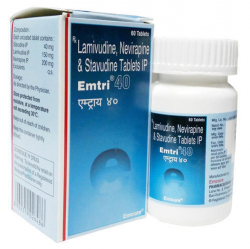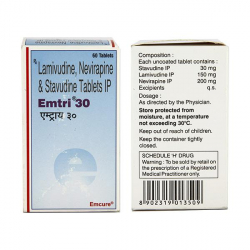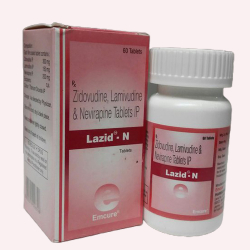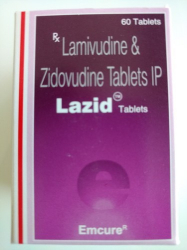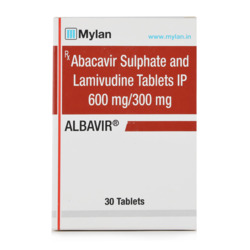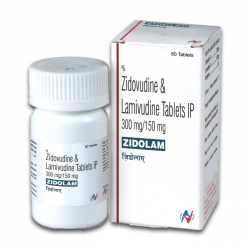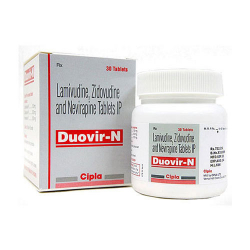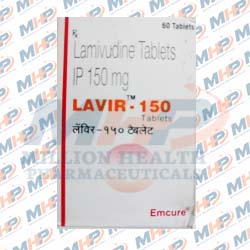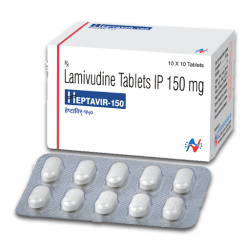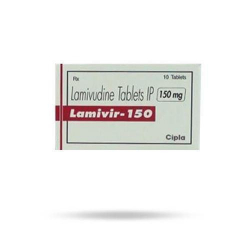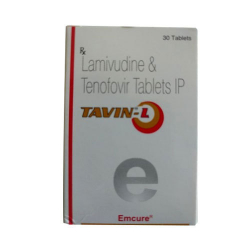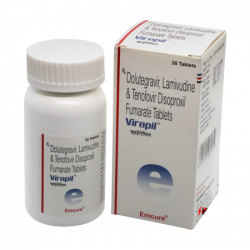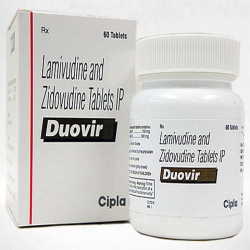


Lamivudine
Lamivudine Uses
Lamivudine-HBV is used to treat hepatitis B infection. It is not a cure for hepatitis B and does not prevent the passing of hepatitis B to others. This medication is a nucleoside reverse transcriptase inhibitor (NRTI) that works by slowing the growth of the virus, thereby decreasing liver damage caused by the virus.
How to use Lamivudine
Read the Patient Information Leaflet provided by your pharmacist before you start using lamivudine-HBV and each time you get a refill. If you have any questions regarding the information, consult your doctor or pharmacist.
Take lamivudine-HBV by mouth with or without food, usually once a day or as directed by your doctor.
Use this medicine regularly in order to get the most benefit from it. This medication works best when the amount of drug in your body is kept at a constant level. Remember to use it at the same time each day. Do not skip any doses. Dosage is based on your medical condition and response to therapy.
Do not stop taking this medication without consulting your doctor. Worsening of your condition, decreased response to medication, or development of drug-resistant types of the virus may occur during or after treatment. Promptly report any new symptoms that occur during or after treatment to your doctor.
Lamivudine Side Effects
Nausea, vomiting, diarrhea, dizziness, headache, fatigue, or infections of the ear/nose/throat may occur. If any of these effects persist or worsen, notify your doctor or pharmacist promptly.
Remember that your doctor has prescribed this medication because he or she has judged that the benefit to you is greater than the risk of side effects. Many people using this medication do not have serious side effects.
Rarely, lamivudine-HBV has caused severe (sometimes fatal) liver problems and a buildup of lactic acid in the blood (lactic acidosis). These serious side effects may occur more often in women and obese patients. Get medical help right away if you have any very serious side effects, including: symptoms of liver problems (such as nausea/vomiting that doesn't stop, loss of appetite, stomach/abdominal pain, yellowing eyes/skin, dark urine), symptoms of lactic acidosis (such as deep/rapid breathing, drowsiness, nausea/vomiting).
Tell your doctor right away if any of these unlikely but serious side effects occur: mental/mood changes, muscle/joint pain.
Tell your doctor right away if any of these rare but very serious side effects occur: tingling/numbness in hands or feet.
A very serious allergic reaction to this drug is unlikely, but seek immediate medical attention if it occurs. Symptoms of a serious allergic reaction may include: rash, itching/swelling (especially of the face/tongue/throat), severe dizziness, trouble breathing.
This is not a complete list of possible side effects. If you notice other effects not listed above, contact your doctor or pharmacist.
Lamivudine Precautions
Before taking lamivudine-HBV, tell your doctor or pharmacist if you are allergic to it; or if you have any other allergies. This product may contain inactive ingredients, which can cause allergic reactions or other problems. Talk to your pharmacist for more details.
This medication should not be used if you have certain medical conditions. Before using this medicine, consult your doctor or pharmacist if you have: pancreatitis.
Before using lamivudine-HBV, tell your doctor or pharmacist your medical history, especially of: HIV infection, kidney disease, blood disorders, liver disease.
This drug may make you dizzy or drowsy. Alcohol or marijuana (cannabis) can make you more dizzy or drowsy. Do not drive, use machinery, or do anything that needs alertness until you can do it safely. Avoid alcoholic beverages. Talk to your doctor if you are using marijuana (cannabis).
Liquid preparations of lamivudine-HBV contain sugar (sucrose). If you are a diabetic using the liquid form of this drug, closer monitoring of your blood sugar is recommended as you begin using this drug. Talk with your doctor or pharmacist for more details.
Kidney function declines as you grow older. This medication is removed by the kidneys. Therefore, elderly people may be at a greater risk for side effects while using this drug.
Children, especially those with pancreatitis, may be more sensitive to the effects of this drug.
This medication should be used only when clearly needed during pregnancy. Discuss the risks and benefits with your doctor. This medication has not been shown to prevent the passing of hepatitis B from the mother to the newborn. Consult your doctor for more information.
This medication may pass into breast milk and have undesirable effects on a nursing infant. Therefore, breast-feeding is not recommended while using this drug. Consult your doctor before breast-feeding.
Lamivudine Interactions
Drug interactions may change how your medications work or increase your risk for serious side effects. This document does not contain all possible drug interactions. Keep a list of all the products you use (including prescription/nonprescription drugs and herbal products) and share it with your doctor and pharmacist. Do not start, stop, or change the dosage of any medicines without your doctor's approval.
Note: We strongly encourage you to talk with your health care professional about your specific medical condition and treatments. The information contained in this website is meant to be helpful and educational, but is not a substitute for medical advice.
Lamivudine View Uses, Side Effects and Medicines, cost, Lamivudine price.













